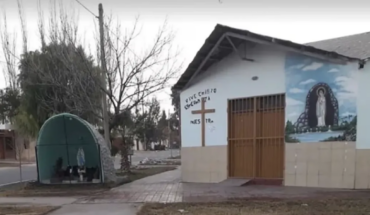The ruling 182/2015, issued by the Court of Justice of the Mixtec region of Oaxaca, resolved the case of a woman with hearing impairment and speech who was raped by two men in her community; However, although one of the aggressors was released during the trial, no measures were issued to protect the victim.
This omission could be known because the network for the citizenship of justice had access, via transparency, to the sentence and made it public in its report is not justice; Otherwise, you would not have had this example of how the judges are acting in the country.
In Mexico, most sentences are not public. Only the judiciary itself and those involved in the trials know its contents. This prevents the society from being monitored for the performance of the judges in their daily work.
“Often unfair sentences, with serious discrimination and prejudices of gender and ethnicity, which omit to protect the one who is at risk, who do not repair the damage or do not contemplate what is necessary for them to be adequately fulfilled, are outside the scrutiny of the people”, It points out the study (In) Open justice, Ranking of Judicial opacity in Mexico, presenting this Wednesday by the organization Equis Justicia for the women.
This list is made public days after President Andrés Manuel López Obrador said that “the Huachicol” will not be allowed in the judges. Just a week ago, the president proposed to make a who is who in the justice, but linked to the issue of displaying the judges who release suspected criminals.
Lee: Judges in two states ruled that rules of 2018 are applied to children’s stays, and not the AMLO plan: BREAD
“At a time when there is supposed to be a greater willingness to demonstrate and avoid corruption in the judiciary, and in which there is a pretended transparency in the performance of judges, it does not pay to maintain these practices where the citizens cannot know the Sentences they emit, “says Fatima Gamboa, lawyer for Equis Justicia.
Since 2015, a reform of the General law of transparency and access to public information (LGTAIP) reduced the obligation of the judicial powers to disseminate all its resolutions. From this, in the states they are only obliged to show to the citizens those that they consider of “public interest”. But a concrete definition for that concept was never established. “Each state interprets it as it wants and publishes what they want, which is very little,” says Gamboa.
All failed
According to the results of the Ranking of (In) open justice, all the judicial powers of the country are reproached in transparency and in having mechanisms for the citizen participation. But the four with the worst performance are the state of Mexico, Aguascalientes, Morelos and Puebla.
In order to evaluate the judicial powers of the entities, the civil organization took a non-stop exercise. From ten questions – such as how many sentences they publish, whether they have pro-active transparency policies and mechanisms for citizen participation or if they have a budget for transparency – indicators were created. The maximum score that the entities could get was a hundred points.
Lee: Judiciary goes through reform to prevent judges from using their position to hire
Those who were best evaluated did not arrive at 50. Yucatan has 47.5; Chihuahua and San Luis Potosí, 45; Chiapas, Guanajuato and Michoacán, 40; Durango, Quintana Roo and Sonora 35; Hidalgo, 30; CDMX, 27.5, from there to Colima and Tabasco with 5 points and Puebla, Morelos, Aguascalientes, and state of Mexico with 0 points. “All the local judicial powers of the country are more than reproached in transparency”, the study of Equis justice.
In states such as Aguascalientes, Baja California, Campeche, Jalisco, Oaxaca, Zacatecas and Nayarit, the judiciary considers that no judgment is of public interest and therefore assumes that it does not have the obligation to disseminate them among the citizens.
Other states, such as Tlaxcala, Tabasco, Sinaloa, Nuevo León, Guanajuato, State of Mexico, Coahuila, Mexico City, Baja California Sur and Tamaulipas responded – to the question of X Justicia, made via transparency, about how many sentences were considered of public interest–they did not have the information. Only San Luís Potosí believes that they are all, but it does not publish 100%.
Gamboa notes that it is necessary to know the content of the rulings issued by the judges in order to evaluate their work. “Before another analysis was made, called is not justice, in which 110 sentences were assessed, in eight states, and of only that sample we found that in 85% was not analyzed how gender influenced the existence of the conflict and in 86% No repair measures were issued F Rent to situations of discrimination and violence. ”
Lee: Mexico City accepts to make public the sentences of its judges
This study also identified that 79% of the judgements analyzed did not use legal standards for the protection of human rights and in 71% of the cases there was not included any measure of follow-up to the fulfillment of the judicial resolution.
The recommendations
Given the results of the list, the organization issues a series of recommendations, such as:
Work on the registration of issued sentences and publish them on the Web pages of the local judiciary, taking into account inclusion and accessibility criteria (language diversity, reasonable adjustments for people with disabilities, limitations of access and technological management.
As a large percentage of the population lacks the resources and knowledge necessary to access and interpret the content of sentences, the judiciary must remove that barrier with appropriate dissemination actions, with clear and accurate information , enabling citizens to better understand their content and the work being done by the judges.
Clear criteria are also missing, according to the organization, to define what information is “public interest”. It is urgent to agree on criteria and concepts from legislation, according to the principles of maximum publicity contained in the same law.
“Access to information is much more than access to sentences. Is to know processes, rights violated, mechanisms to demand them, is to generate legal empowerment. That’s why we want pro-active transparency and citizen participation mechanisms that generate legitimacy and trust in the system. We want an open justice that guarantees the protection of rights and access to justice for all people, “the organization’s report concludes.
Thank you for reading! Help us get on with our work. How? Now you can subscribe to the political Animal on Facebook. With your monthly donation you will receive special content. Find out how to subscribe here. Check out our list of frequently asked questions here.





